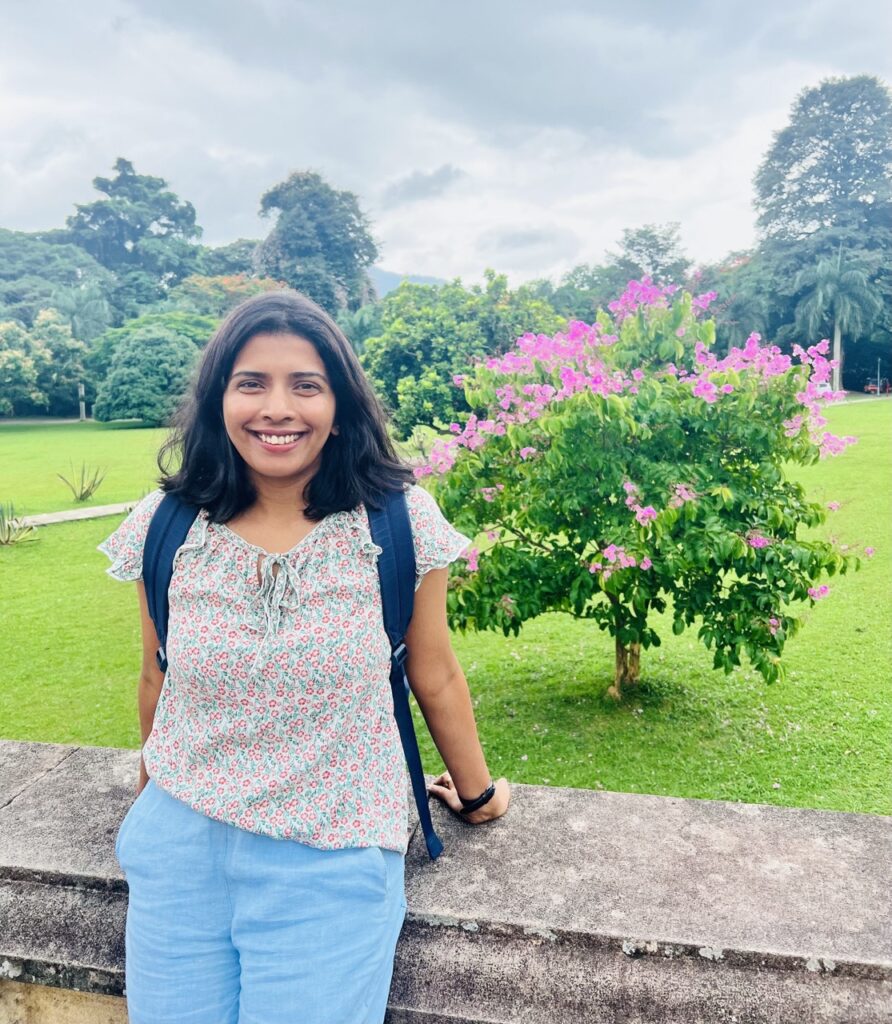Hi CHI Community!
I’m Priyanka Jayakodi, a Cultural Anthropology PhD student. My research examines the entanglements of state violence, medical discourses, and environmental issues in Sri Lanka. I use ethnographic and visual methods such as photography and sketching in my research. I studied Sociology for my BA (2015) and MA (2016) at the University of Peradeniya, Sri Lanka. I am incredibly excited to be a CHI Fellow of the 2023-24 cohort because this is a space where I get to learn from peers coming from various disciplines.
My Ph.D. dissertation will examine the social and political aspects of water insecurity in the context of Chronic Kidney Disease of uncertain etiology (CKDu) in Sri Lanka. I initially became interested in CKDu when I carried out research for my BA thesis in 2015, which was around the social stigma associated with CKDu. At that time, people living in areas where CKDu is prevalent didn’t openly talk about this illness because of social stigma, and as a result, some even evaded seeking treatment. Even though scientists have been researching CKDu for more than 20 years, it remained poorly understood. Therefore, it is often called a “mysterious disease” by medical experts, researchers, and ordinary people. Things have started to change, but CKDu is mostly framed as a medical enigma in Sri Lanka and many other locations, such as El Salvador, Nicaragua, Guatemala, and Egypt. Through my doctoral research, I am interested in exploring how people’s relationality with water and farming practices (particularly the use of agrochemicals in rice cultivation) are shaped by or in response to this health crisis. I have been to my research community in Sri Lanka several times since I started my PhD studies, and I have developed marvelous connections with some families there.
My work that illuminates state violence is not limited to exploring cultural understandings of water insecurity in the context of CKDu. My first publication in a peer-reviewed journal examines Sinhala Buddhist nationalism in Sri Lanka. I’m working on a book chapter (under review) that focuses on militarism in Sri Lanka in the context of the COVID-19 pandemic. I think my commitment to disrupting/resisting/unpacking/problematizing state violence stems from the very fact that I’m a first-generation college student. This means that for generations, my ancestors have been deprived of having access to intellectual labor by people who were/are in authority. Therefore, in terms of paying forward and moving forward in academia, I feel there is an imperative for me to be internationally disobedient/disruptive/undisciplined with my work. Hence, my research explores innovative research methods that do not sit well within traditional disciplinary boundaries in social sciences. In fact, this is what made me drawn to anthropology as a multidisciplinary community that encourages epistemological diversity.
If you asked me to name five of my favorite anthropologists whose work inspires my own thinking, writing, and research, I would pick Michael Taussig, Ann Laura Stoler, Anand Pandian, Lenore Manderson, and Nancy Scheper-Hughes. When I am not reading, I love spending time going on long walks, sketching, and photographing birds.
I am inspired by digital projects created by environmental anthropologists such as Nikhil Anand and Anand Pandian. I always look for opportunities to learn more about creative and innovative ethnographic methods instead of following the typical social science research methods. I truly hope the skills and practice I gain through this fellowship will also expand my methodological interests to explore various ways to incorporate digital informatics into my research.
Please stay tuned for more posts in which I hope to go into more specific details about my experiences during this fellowship year and my final project.
Cheers,
Priyanka
